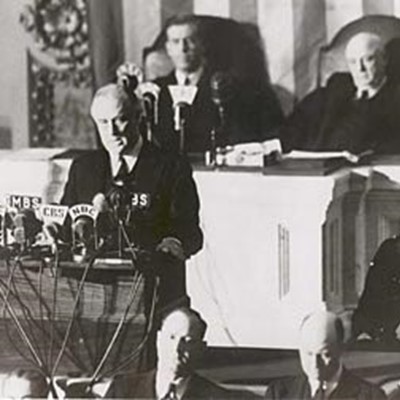
"Fear keeps steady company with the performing arts," writes Buckley School founder Reid Buckley in his book "Strictly Speaking." We’re publishing a series of excerpts from that book on how to manage public speaking nerves, stage fright, and presentation panic.
"Geniuses prefer to wing it. Let them. I guess I've never met a genius on stage."
– Reid Buckley on the value of thorough preparation
Don't Permit Fear to Topple You
Rehearse and rehearse and rehearse
Rehearse not only the object of so wearying yourself of it that you cut and compress all the more, for maximum economy, but with the intention of imprinting in your memory the sense of what you want to say and how you want to say it.
When, you see, you contain the totality of your text in the pitcher of your mind, and when you have practiced pouring out each phrase of it so often your voice and body respond to the sense in just the way you wish, your confidence upon mounting the stage will be superb, because you will know just what you must do and just how you will do it--that confidence insulating you from the treachery of your nerves.
Keeping nerves at bay though you have so diligently rehearsed the topic that it has gone flat for you.
There's something called professionalism. Broadway actors in a hit play may be compelled to repeat their performances hundreds of times.
I gave one fifty-minute speech so often that I suffered a kind of despair when I saw the topic come up on my schedule. A pro must do what he or she must do. A certain stoicism must be acquired by the speaker, a fortitude.
But there are techniques I found helpful in keeping my interest up:
1. Almost every time I went over a talk, I scribbled in a correction here, an emendation there. I crossed out phrases, substituted single words. I kept fooling with the text, so that there was something fresh in it.
2. I compelled myself to ad lib. By typing this symbol >--------< across the page, I flagged for myself that obligation. These ad libs were usually reserved for illustrative anecdotes. To keep some of the material fresh, I accepted the risk of telling a story superbly (?) one night, less well on another.
3. Depending on the audience, I slashed some passages out of that day's performance and inserted others. In other words, some of my material was free-floating. I had my favorite optional passages, but if the statistics grew outworn or some better, fresher citation flashed on the scene, I dropped the old passage. My text was, in parts, forever maturing and becoming tighter.






